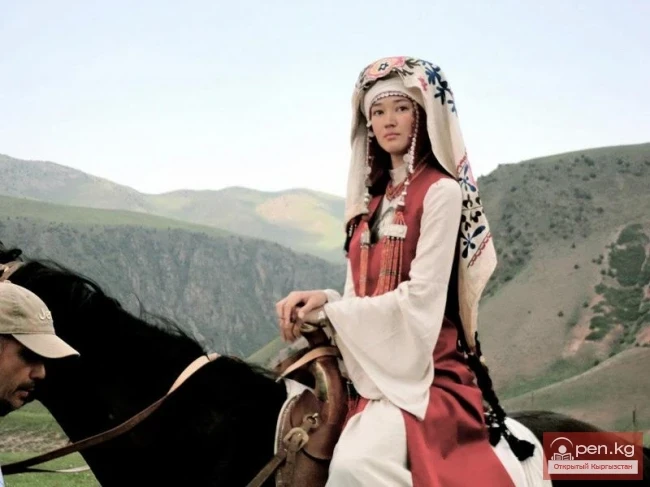How a Strong Woman Led Kyrgyz Cinema to Success
The film "Kyrmanjan Datka" by Sadik Sher-Niyaz has been included in the program of the Montreal International Film Festival. DW spoke with the Kyrgyz director about this film and the development of cinema in Kyrgyzstan.
The film "Kyrmanjan Datka," set during the period of the annexation of territories inhabited by Kyrgyz tribes to the Russian Empire, has been included in the program of the Montreal International Film Festival (August 21 - September 1). Director Sadik Sher-Niyaz spoke to DW about working on the film and the development of the film industry in Kyrgyzstan.
DW: Why do you think the film "Kyrmanjan Datka" was chosen for screening at the Montreal International Film Festival?
Sadik Sher-Niyaz: An invitation to the Montreal Film Festival is a good sign for the film. To be honest, I was very worried that festivals do not favor patriotic films on historical themes. At least, the recent selections of films prove this. Many historical films have been made in Russia, and for example, Kazakhstan released the film "Nomad."
But most of these films do not make it to festivals. Therefore, I think the jury was attracted to the fact that we focused on the experiences of the main character. We portrayed the emergence of the image of a woman leader through the lens of historical events.
- The premiere of the film will take place on August 31, but perhaps you can already tell us what this film is about?
- This is a historical film that covers the life of the great woman Kyrmanjan Datka from her birth until her death. She lived for 96 years and witnessed many important events. It was a hot time in the political world: the destruction of Kokand, Bukhara, and the annexation of territories inhabited by Kyrgyz tribes to the Russian Empire. The film's action unfolds around this geopolitical game.
Kyrmanjan's parents marry her off to a man she does not love, and she runs away from him. For that time, this was an unprecedented case, and this already shows the character of our heroine. The ruler of the region - the Ferghana Valley - Alimbek Datka learns about this and subsequently falls in love with Kyrmanjan and takes her as his wife. They have children, and everything seems fine, but intrigues are brewing in the Kokand Khanate. At that time, there was a division between northern and southern Kyrgyz, whom Alimbek Datka tried to unite. However, his actions are not welcomed by the Kokand Khanate, and Alimbek is killed. Kyrmanjan has to take care of her people. The Emir of Bukhara grants her the title of Datka - leader of the Ferghana Valley.
After the capture of Kokand by the Russian army, she signs a treaty with General Mikhail Skobelev regarding the incorporation of the territory inhabited by the Kyrgyz people into the Russian Empire. But soon Alexander Poval-Shveykovsky is appointed governor, who was quite a short-sighted person. Thus begins the confrontation. Due to a false denunciation, Kyrmanjan's son is accused of killing Russian soldiers and is to be executed. Datka understands that his release could have dire consequences for the people and agrees to sacrifice her son. Her second son fights against the Russian army, waging war against it for two years. Eventually, he leaves for Afghanistan and dies there from his wounds. In the end, this woman loses almost everything but remains strong.
- The story of the annexation of the territory of modern Kyrgyzstan to the Russian Empire is quite controversial. The northern tribes were more favorable towards this than the southern ones, which resisted. Given this, were you tempted to portray the Russian Empire in the film as a sort of "villain"? Or did you refrain from making judgments?
- I am generally far from the idea that the film should express something against any nation. I think any creative person should adhere to such a position: one cannot instill hatred. It is a historical fact that Kyrmanjan Datka's son was hanged by order of Poval-Shveykovsky, and naturally, we showed this. The film depicts the truth. There is no "villain," as you say, but there are long-lasting experiences of Kyrmanjan Datka and her rebirth as a person. She is the main character of the film. We could not overlook the Kokand Khan, the Bukhara Emir, Alexander II, or the governors Skobelev and Poval-Shveykovsky. They are present in this film, as each of them played their role in history.
- Not long ago, Kyrgyz audiences did not go to local films. Now, as many experts note, the situation has changed. Why has the audience in Kyrgyzstan suddenly become interested in domestic cinema?
- Every year, about 50-60 films are produced in Kyrgyzstan. Due to a lack of funds, they are naturally far from cinematic art. Nevertheless, the process of film production has started: cinemas have appeared that show Kyrgyz films, and there are films that are profitable. Moreover, some local films compete at the box office with Hollywood blockbusters and win against them. Of course, one of the important factors is that the Kyrgyz audience wants to see their actors on screen and hear their native language.
I am pleased that for the third year in a row, audiences are going to theaters to see domestic films, and that Kyrgyz cinema is developing very well. At the closed screening of the film "Kyrmanjan Datka," we asked those present not to post anything on social media. But how can you forbid that? They began to quietly discuss the film, and many reviews appeared, both positive and negative, which I think is normal for promoting any film.
Lilit Dabagyan,
"Deutsche Welle",
Read also:
Official Trailer for the Film Kurmanjan Datka
Director Sadik Sher-Niyaz, chief producers Deputy of the Jogorku Kenesh, Chairwoman of the...
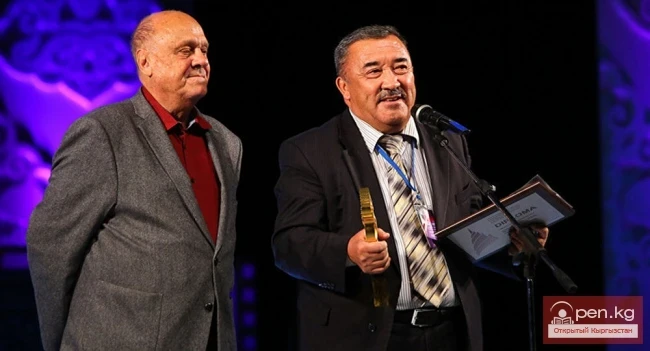
The film "Kurmanjan Datka" won the Grand Prix at the Kazan Film Festival.
As noted by the chairman of the festival jury, actor Vladimir Menshov, Kyrgyzstan produced a film...
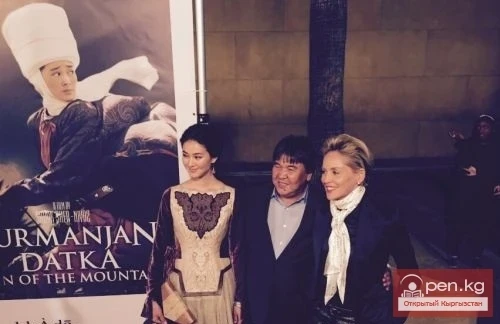
The premiere of the film "Kurmangazy Datka" featuring Sharon Stone took place in Los Angeles.
The premiere of the film "Kurmanjan Datka" took place in Los Angeles (USA) on November 4....
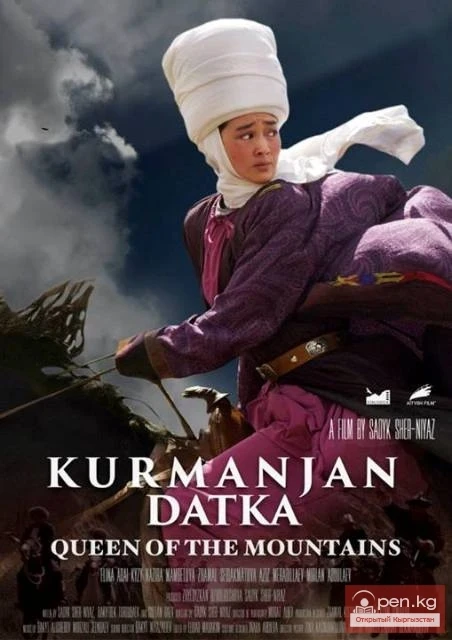
The film "Kurmanjan Datka" has been delivered to the client.
On August 13, at the "Manas" cinema in Bishkek, the completed film "Kurmanjan...
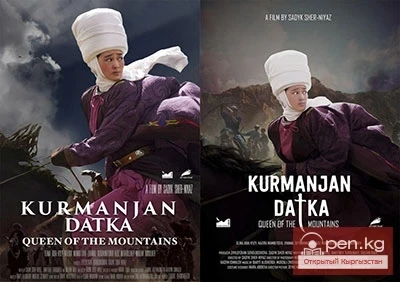
"Kurmanjan Datka" was shown in Moscow
The premiere of the new film by Kyrgyz filmmakers "Kurmanjan Datka" was successfully...
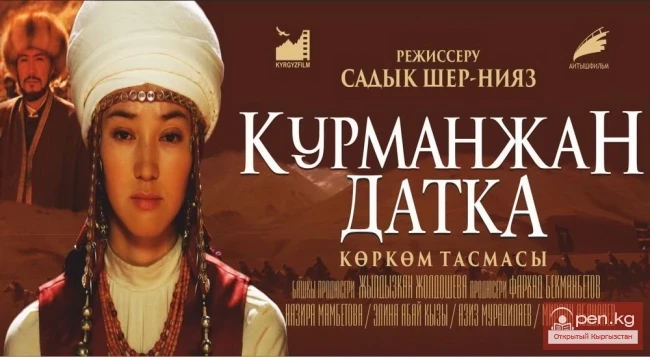
The film "Kurmandjan Datka" fills movie theaters more than 70 times a day.
The domestic cinematic epic "Kurmandzhan Datka," which premiered on August 31, is...
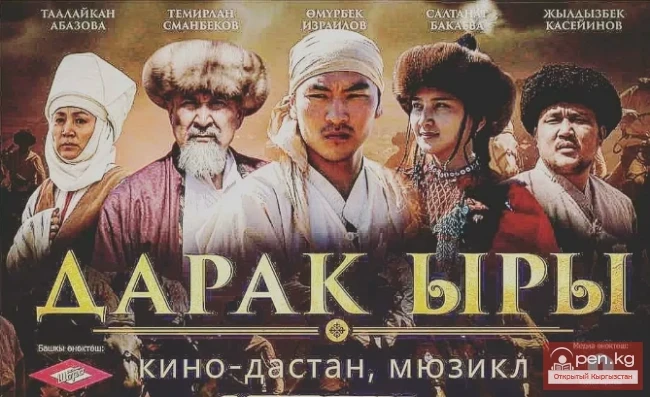
The film "Darakh Iry" won the Grand Prix at the film festival in Russia.
A Film from Kyrgyzstan Became the Best at the Muslim Film Festival On April 30, the results of the...
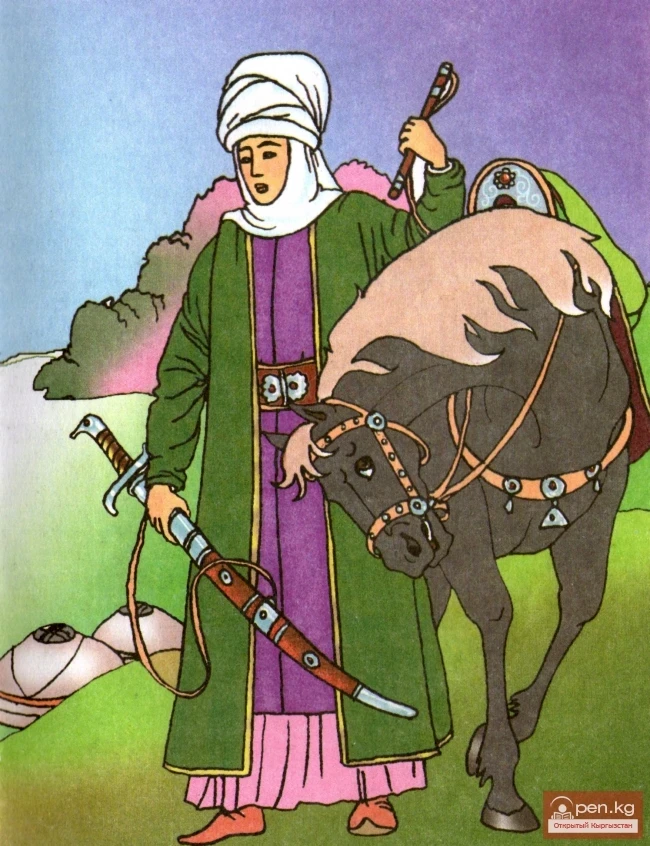
Kurmanjan Datka
Perhaps the brightest and most memorable heroine of Kyrgyz history is Kurmanjan Datka, the wife of...
50 Som - Kurmanjan Datka
Kurmanjan Datka — a Kyrgyz state and military leader, the chieftain and ruler of the Alai Kyrgyz...
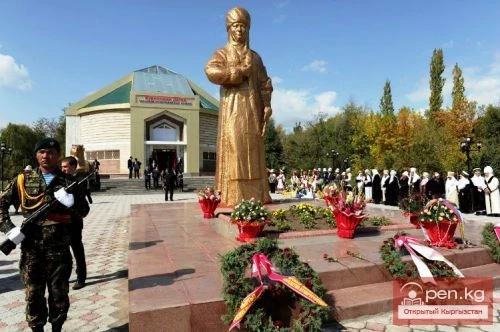
Alaï District Historical Museum named after Kurmanjan Datka
The museum houses exhibits that reflect the life of the entire Kyrgyz people, as well as personal...
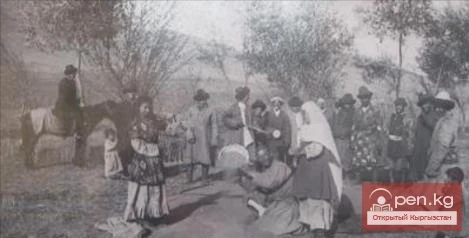
In Kyrgyzstan, a documentary film "Urkun" is being made about the 1916 uprising.
A documentary film titled 'Urkun' about the 1916 uprising is being filmed in Kyrgyzstan....
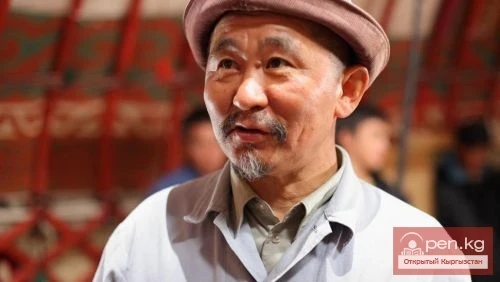
The film "Light-Ake" will be screened at the Museum of Modern Art in New York.
On April 7, the Museum of Modern Art in Manhattan, New York, will screen the film...
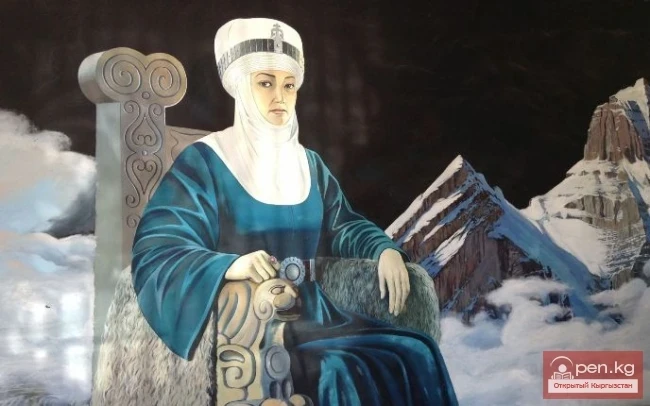
Memorial and Cultural Complex "Kurmanjan Datka" Transferred to the State
On April 10, during a working trip to the Issyk-Kul region, the Vice Prime Minister of the Kyrgyz...

Tourist Area Management Program
The project "USAID Business Development Initiative" (BGI), within the tourism...
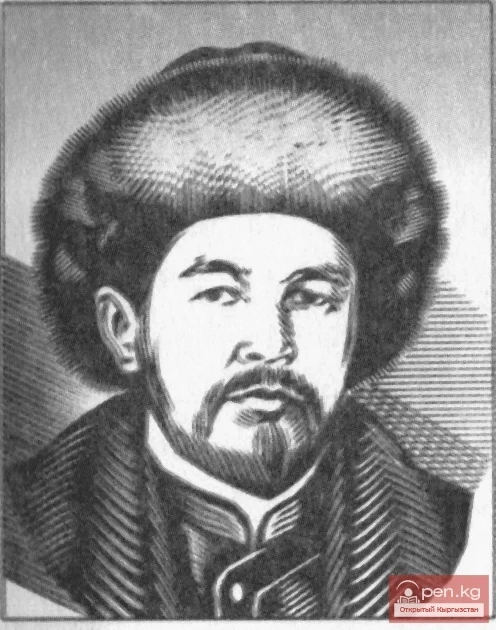
Alimbek Datka
The childhood and youth of Alymbek Datka were spent in Alai - a harsh but fabulously beautiful...
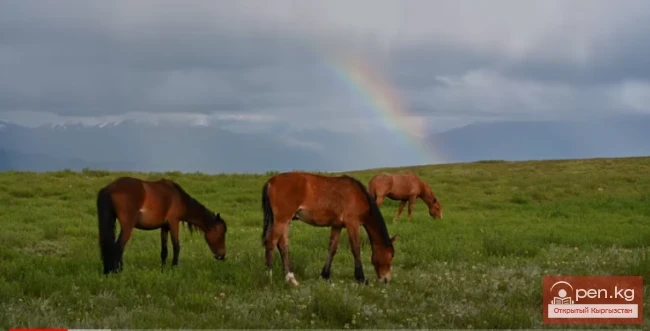
Kyrgyzstan. A Film by Rustam Khadzhibaev
Film by Rustam Khadzhibaev [media= ] [media= ]...
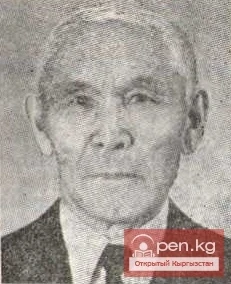
Literary scholar, prose writer, poet Dzaki Tashtemirov
Literary scholar, prose writer, poet Dz. Tashtemirov was born on October 15, 1913—October 7, 1988,...
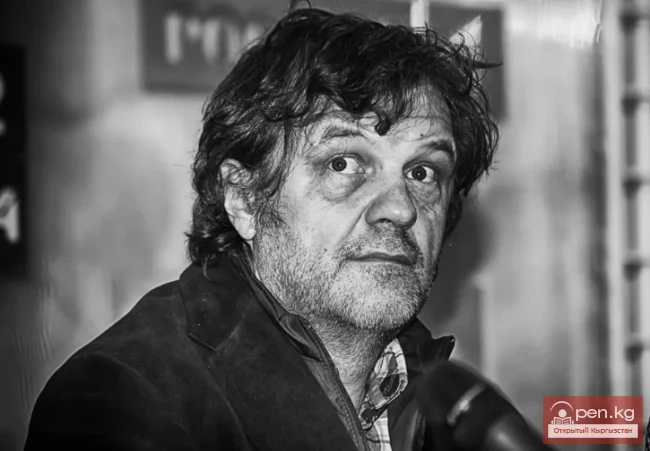
Emir Kusturica Plans to Make a Film About Genghis Khan Based on a Book by Chinghiz Aitmatov
Kusturica plans to make a film about Genghis Khan based on Aitmatov's book Film director Emir...
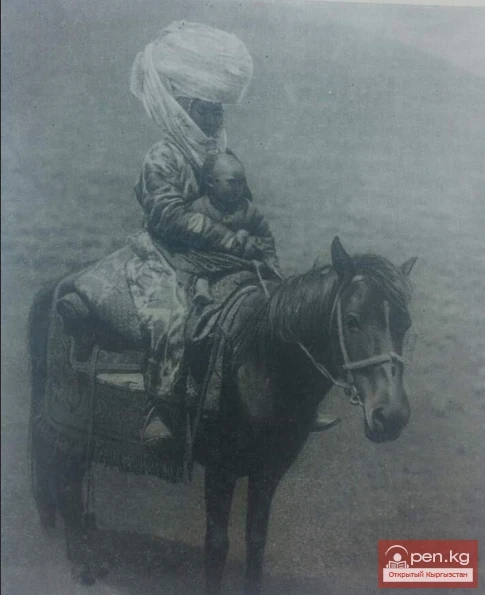
Kurmanjan Datka - Queen of Alai. Part 2
Kurmanjan Datka. Part - 2 After marrying Alymbek Datka, she did not become pregnant for seven...
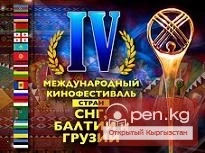
Winners of the Fourth International Short Film Festival "Kyrgyzstan - the Country of Short Films"
The international jury consisting of: Khojakuli Narliev (chairman), Artykpai Suyndukova, Gulnara...

The film "Cat" by a fourteen-year-old Kyrgyz girl made it to the shortlist at a festival in Italy.
The film "Kat" by 15-year-old Kyrgyz girl Alina Koshmatova The artistic short film...

Days of Cinema of Turkic-speaking Countries in Bishkek
The Days of Cinema of Turkic-speaking Countries are taking place for the first time in Bishkek....

Russian Film Week in Kyrgyzstan
“Russian Film Week” From July 19 to 25, “Russian Film Week” will take place in the cities of...
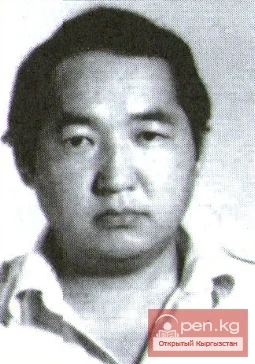
Zhaylobaev Umutbek Kemelovich
Zhailobayev Umutbek Kemelovich Film artist. Born on April 9, 1953, in the village of Bokonbaev,...
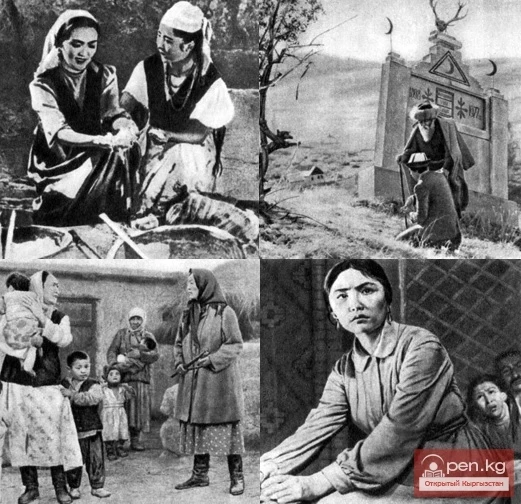
The Formation of Kyrgyz Cinema
Until 1917, there was one cinema installation in Pishpek (now Bishkek). From the very first years...
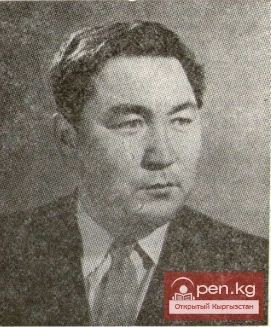
Ashimov Kaarman
Ashimov Kaarman An analysis was conducted of the most significant documentary and feature films of...
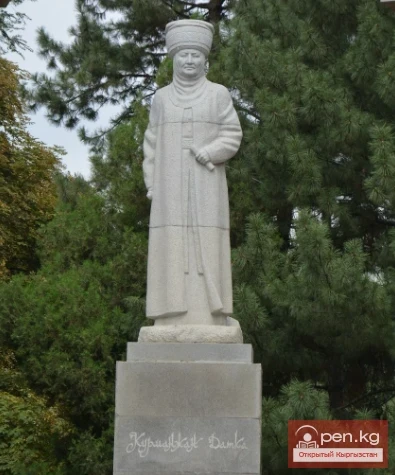
Kurmanjan Datka - Queen Alaya. Part 1
Kurmanjan Datka. Part 1 In the centuries-long history of the Kyrgyz people, the name of Kurmanjan...
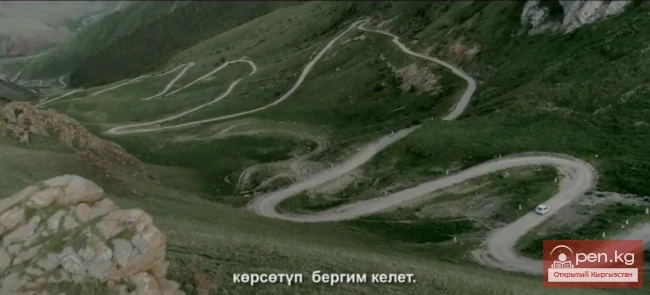
"Stunning Documentary About Kyrgyzstan. Video"
Kyrgyz director Nurlan Anarbaev has created a captivating documentary about his homeland. The...
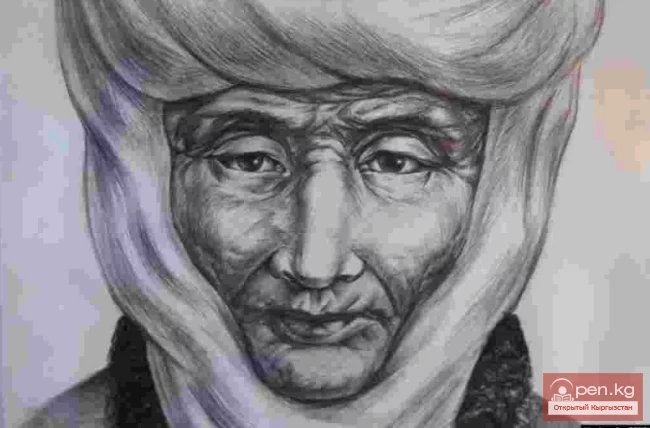
Kurmanjan Datka - Queen Alaya. Part 3
Kurmanjan Datka. Part - 3 The small village of Gulcha, where Kurmanjan's residence was...
"Manas" Epic 3D Format
Kyrgyz from China are creating a cartoon in 3D format based on the "Manas" epic. This...

Types of Insects Listed in the 2004 IUCN RLTS Not Included in the Red Book of Kyrgyzstan
Insect species listed in the 2004 IUCN RLTS, not included in the Red Book of Kyrgyzstan 1....
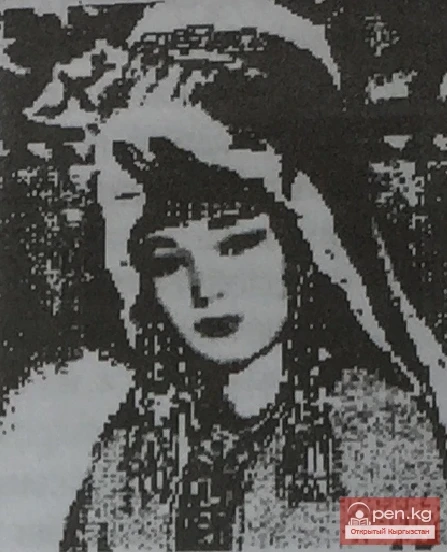
My Dear (The Mayor)
Zharkynaiym. In the political life of the Kokand Khanate, an interesting role was played by the...
Film about the Snow Leopard
The snow leopard, or irbis (Latin: Uncia uncia, according to another classification - Latin:...
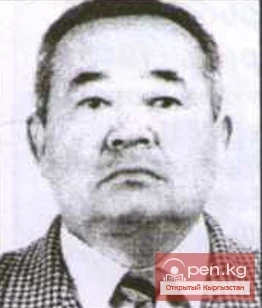
Zhorobekov Zholbors
Zhorobekov Zholbors (1948), Doctor of Political Sciences (1997) Kyrgyz. Born in the village of...

The film "Life Drive" was presented in Bishkek.
Last weekend, the new film from the republic's film production masters was presented at the...

Types of Higher Plants Listed in the "Red Book" of Kyrgyzstan (1985)
Species of higher plants removed from the "Red Book" of Kyrgyzstan (1985) Species of...
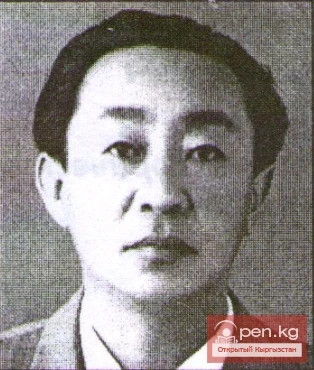
Yunusaliev Bolot Muratalievich
Yunusaliev Bolot Muratalievich (1913-1970), Doctor of Philological Sciences (1954), Professor,...
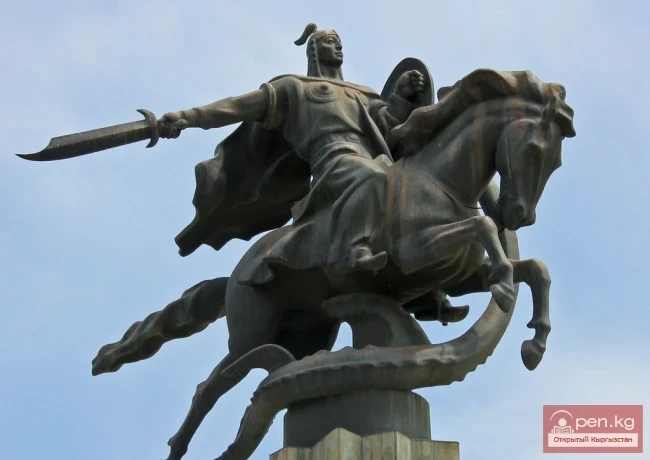
South Korea to Make a Film About Manas
The National Commission of the Kyrgyz Republic for UNESCO is starting the implementation of a...
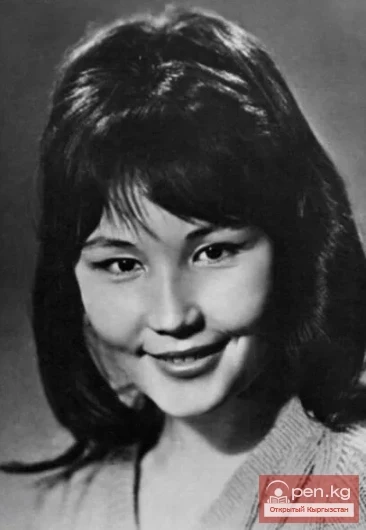
Honored Figure of Culture of the Kyrgyz Republic Klara Yusupjanova
Klara Yusupjanova Born on December 29, 1940, in the village of Kara-Suu, Naryn region. She...

Bishkek Hosts Open-Air Movie Screenings
Another entertainment has appeared in Kyrgyz Bishkek. Until the end of September, residents and...

Banknotes with a denomination of 50 som
The 50 som banknote of the 2009 series is printed on white paper measuring 126x61 mm. The...
Collectible Coins Dedicated to the "Historical Events" Series
Since August 8, 2012, in honor of the celebration of the Independence Day of the Kyrgyz Republic,...
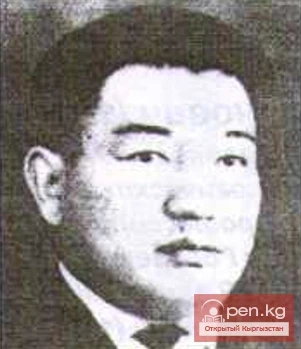
Jursun Suvanbekov
Suvanbekov Jursun (1930-1974), Doctor of Philological Sciences (1971) Kyrgyz. Born in the village...
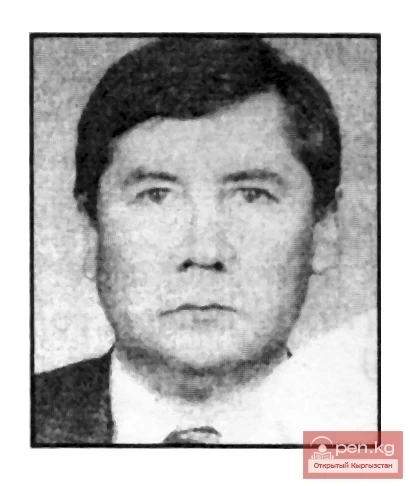
Abdyldaev Bolot Ishembaevich — Doctor of Medical Sciences
Abdyldaev Bolot Ishembaevich (1952), Doctor of Medical Sciences (1998)...
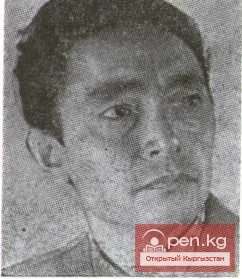
Prose Writer Tolegen Kasymbekov
Prose writer T. Kasymbekov was born on January 15, 1931, in the village of Ak-Dzhol, Jangi-Jol...
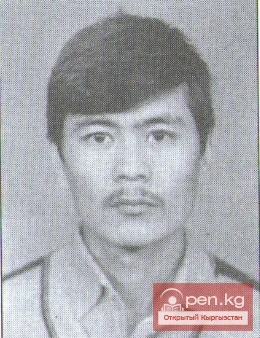
Uraimov Suyunbay Mamaevich
Uraimov Suyunbay Mamaevich Sculptor. Born in 1958 in the village of Kurshab, Uzgen District, Osh...
The initiative "Poverty and Environment" in Kyrgyzstan
The film discusses the connection between environmental issues and poverty....
